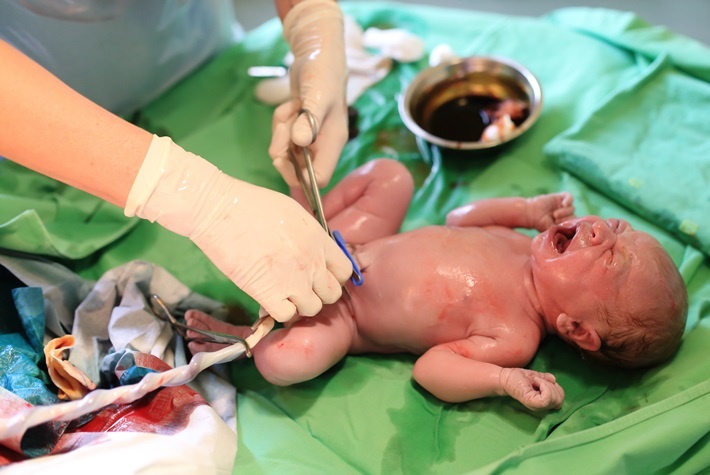
The human body is made up of over 200 specialised cells. For example, the cells that make up our muscles are different to those found in your blood, which are then different again to the cells that make up your hair.
Stem cell is simply the name we give to a master “naive” cell that can transform into these specialised cells depending on where in the body it is needed. These properties make them extremely valuable in medicine.
Your baby’s umbilical cord blood is a rich source of stem cells. These are different from the stem cells obtained from a child or an adult. The stem cells in your baby’s umbilical cord blood can grow into blood and immune system cells, as well as other types of cells in the body such as neuronal cells of the brain as well as cartilage and muscle cells.
Stem cells collected after birth from your baby’s umbilical cord are considered to be the ‘youngest’ and ‘freshest’ types of stem cells. They are just a minute old and do not have the immune history that stem cells from other sources such as bone marrow and peripheral blood in our bodies have. This means they are more readily accepted by the patient in a transplant setting, and studies show there is a lower incidence of Graft versus Host disease (when the patient’s immune system rejects the transplanted cells).
Cord blood stem cells also have a broader match potential in comparison to stem cells from other sources because they do not need to be an exact genetic match due to the nature of the stem cells present in the cord blood.
Having your baby’s umbilical cord blood stem cells stored at birth means that they are readily available to be shipped immediately should the need for transplant within the family arise. This saves valuable time searching public banks for an exact genetic match for the patient.
Got more questions about saving your baby’s umbilical cord blood?
Speak to one of our cord blood specialists now at +971 4 3116613 or send us an email


